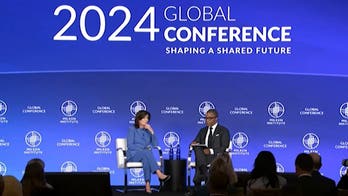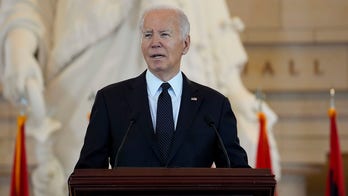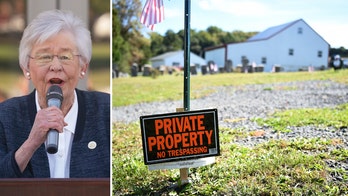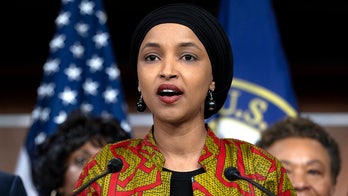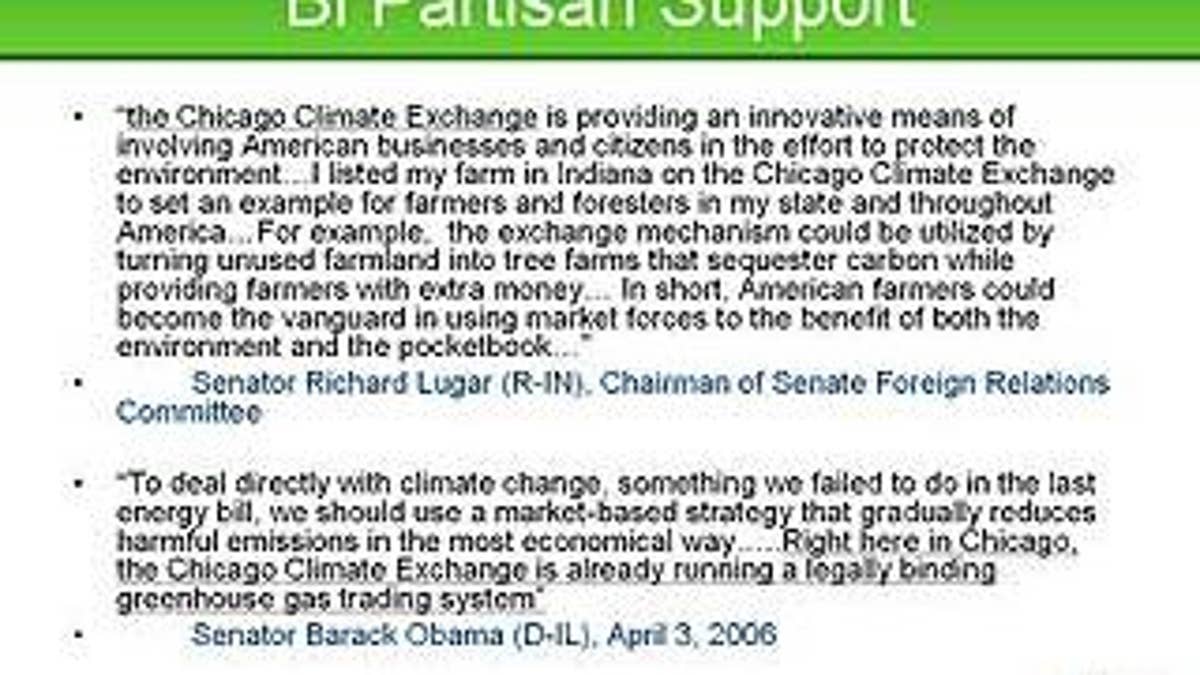
A greenhouse gases trading system funded with the help of then-Illinois State Sen. Barack Obama would appear to have another prominent supporter, Indiana Sen. Richard Lugar, the ranking Republican on the Senate Foreign Relations Committee, who was also one of the system's earliest clients.
Three years ago, Lugar, who grows corn, soybeans and trees on his family's 604 acres of property in Marion County, Ind., became the first farmer in his state to sign up with the new commodity market called the Chicago Climate Exchange, which is likely to play a major role in President Obama's $650 billion cap-and-trade initiative. In the process, Lugar became what the exchange called an offset producer, entitling him to a financial reward in return for keeping his part of his property untouched.
Lugar, who was chairman of the Foreign Relations Committee at the time, not only participated in the Climate Exchange program. He also endorsed it in its promotional advertising, an endorsement that could prove significant as climate change legislation, which was introduced last month in the U.S. House of Representatives, moves forward as an Obama Administration priority.
Despite signing a promise not to cut down any of the 200 acres of walnut and other hardwood trees on his 604 acres, thus preserving the trees' ability to absorb carbon dioxide, Lugar never cashed in on the financial profit due to him, a fact that his office confirmed in an interview with FOX News. He never sold the small stack of certificates he received from the exchange as part of a "cap and trade" deal involving the untouched trees.
The Climate Exchange, however, profited from its association with Lugar, one of the Senate's most influential voices on foreign policy and a highly respected elder statesman. As recently as last October, the exchange was still using Lugar's participation to promote itself to farmers and the public, in the form of a ringing endorsement from the Senator that the exchange displays in marketing tools.
Click here to see a Powerpoint presentation including the endorsement. (Warning: large file)
Lugar's property, Lugar Stock Farm Inc., is also listed as an official "offset provider" among "participant members" of the exchange on the official Chicago Climate Change Web site.
Click here to see the listing.
"I am hopeful that farmers in Indiana and elsewhere will investigate the possibility of enrolling in the exchange," Lugar said in a press release issued at the time of the deal. His quote was also contained in a Climate Exchange sales presentation dated October, 2008. "This not only will encourage the practice of sequestering carbon, it will provide an additional source of farm income to those who qualify," the testimonial continued.
Lugar's words are on the same page as a milder testimonial from Barack Obama, culled from a speech he made on April 3, 2006, as a freshman U.S. Senator and presidential aspirant.
Sen. Lugar's deal with the exchange was typical of the cap-and-trade theory on which it operates. By guaranteeing to preserve his trees, Lugar created a new, tradeable good: a certified guarantee that the preservation would remove an estimated 3,400 tons of carbon from the atmosphere.
This certificate, in turn, could be traded on the Climate Exchange, for a price that would vary with supply and demand, to a company that released carbon dioxide into the atmosphere, as an "offset" for its pollution. The value of the certificate to polluters is that it would likely be less than the cost of pollution control equipment to achieve the same effect.
At the time Lugar signed the agreement, a ton of carbon offset was trading for $3.89, according to press reports. Now, the same ton of carbon is trading for $1.50, largely because the recession has cut down on industrial output and consequently lowered the value of offsets.
The cap-and-trade offset that Lugar's trees provide is a cornerstone of the system that President Obama wants to use in the U.S. to control carbon dioxide, a ubiquitous greenhouse gas that is blamed by many experts for helping to cause global warming. Schemes for reducing the carbon-based gas are decried by critics as a huge tax on American consumers and industry, that could cost as much as $2 trillion.
Congress is now considering a bill submitted by California Rep. Henry Waxman and Massachusetts Rep. Edward Markey that would use a cap-and-trade scheme to cut carbon emissions by 20 percent from their 2005 levels by 2020 and 83 percent by 2050. So far, the bill avoids the hard questions of how offset credits would be issued as well as how gas emission would be measured. But it does establish that credits and offsets be traded. If it is imposed, the Chicago Climate Exchange, the only carbon trading market in the nation, could be a major beneficiary because of its expertise on putting a value on carbon and its offsets.
The Climate Exchange is the brainchild of Richard Sandor, an economics professor who has worked for both the Chicago Mercantile Association and the Chicago Board of Trade. Known as "Mr. Derivative" for his work in creating interest rate futures markets, Sandor first proposed the creation of the Climate Exchange in 2000, just before the signing of the Kyoto Accord on greenhouse gas reduction. The United States subsequently refused to participate in the accords.
In 2000 and 2001, while still a state senator, Obama voted along with other members of the board of the Joyce Foundation, a Chicago-based charitable organization, to give more than $1.1 million to help the Climate Exchange get off the ground.
In 2001, when the Joyce Foundation gave more than $750,000 of the total to the exchange -- a grant considered crucial to its launch -- Joyce Foundation president Paula DiPerna had moved over to become president of the exchange's parent company as well as the its executive vice president, a position she still holds. Obama was still on the Joyce Foundation's board.
Despite the fact that he is used in Climate Exchange testimonial literature, and his property listed as an official climate exchange participant, Lugar's spokesman, Andy Fisher, says that the Senator has never taken an official position on cap and trade, nor had he endorsed the exchange beyond seeing it as a promising source of farm income.
"The senator isn't committed to cap and trade," as the answer to global warming, Fisher told FOX News. "Indiana is dependent on coal for its energy and the Senator still has serious questions" about the right way to handle the problem of climate change.
Fisher said that the senator had become acquainted with the exchange because Sandor, its founder, had "testified before Congressional committees he headed around 20 times." He also said the senator had no other dealings or financial interest with the exchange.
In fact, congressional campaign contribution records maintained by Open Secrets.org show that Sandor has contributed $3,000 to Lugar's campaign coffers since 2005.
In 2007, according to a National Farmer's Union press release, Lugar also allowed his farm to be the centerpiece venue of the Exchange's celebration of Earth Day. "We are honored and proud to be able to further build this environmental market with the help of Senator Lugar's farm as a source of emission offsets," Sandor says in the release.
Calls by FOX News to the Climate Exchange were not returned.
That Obama and Lugar show up together in the exchange's sales pitches is not surprising, according to Fisher. He said the two legislators became acquainted after sponsoring a nuclear non-proliferation initiative and traveling to Russia and Eastern Europe to support the bill several years ago.
On the trip, according to Fisher, the two discussed other issues that they had in common and decided to jointly introduce the American Fuels Act of 2006, that would increase the use of ethanol and move the country away from an oil based energy system, according to Obama. The bill was referred to committee but never passed.
In the next session of Congress, Obama solely sponsored the bill, which again died in committee.

